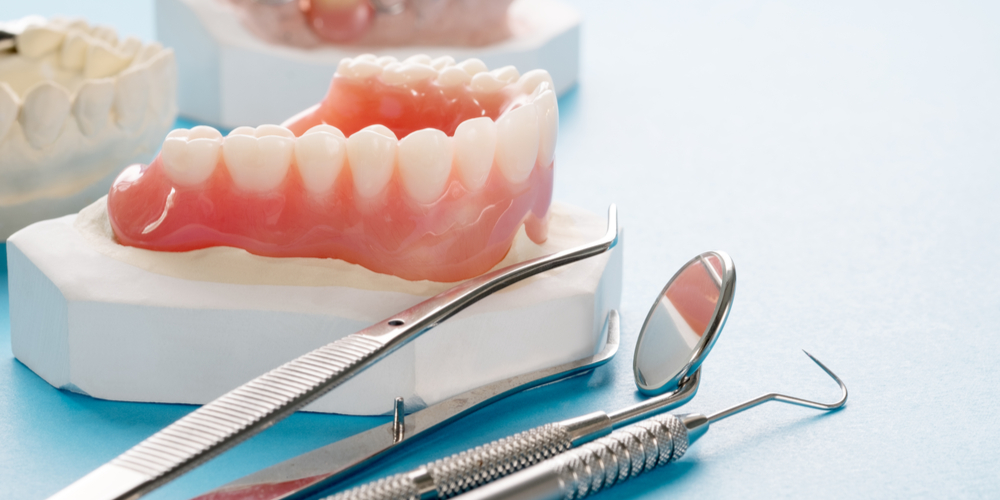
Dentures have long been a popular replacement for missing teeth. More commonly known as ‘false teeth’ they are natural looking replacements which look and function in the same way as your remaining teeth.
They consist of a plastic ‘plate’ on which artificial teeth are attached to. The natural suction of your mouth and gums holds the plate in position along with metal clips although the latter is not always included. A loose denture can be fixed in place with dental implants.
There are 2 types of dentures:
- Partial: also known as an ‘overdenture’, this denture prevents the remaining teeth from drifting out of position.
- Full: a full denture acts as a replacement for most or all of your teeth.
Dentures are made from acrylic resins although there are other materials available as a result of advances in dental technology.
REASONS FOR DENTURES
Dentures are used to replace missing teeth and have proven to be a reliable and effective substitute. They must be cleaned on a daily basis and soaked overnight to ensure that they remain as effective.
However, they will need to be adjusted, e.g. re-lined, on occasions due to natural shrinkage of the gums as a result of the ageing process. This causes the dentures to become loose, resulting in an adjustment or in some cases, a new pair.
DENTURES PROCEDURE
Your remaining teeth and gums will be examined to check their current condition and any dental work carried out as and where necessary.
Once this has been completed an impression will be taken of your teeth and gums which provide a blueprint of your mouth for the dental technician. The technician will use this to create your dentures which are customised to your individual needs.
An alternative to this is a fixed bridge or implants.